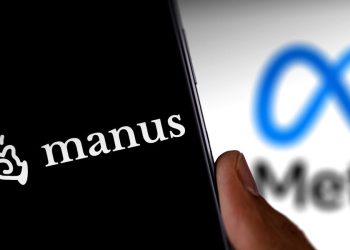- The Moxie AI robot cost $800 and was marketed to parents to help teach children social skills.
- The company sent customers an email in late November announcing it would be shutting down.
- Parents of children who were attached to their robot now have to explain that it’s going away.
Moxie, an AI-powered toy robot aimed at preschoolers and other children, is shutting down — leaving parents in the position of having to explain that a beloved companion is going away.
It’s a new wrinkle in our AI-enhanced world after kids became attached to the lifelike robot that promised to help them learn social skills — only to be told the company would no longer support Moxie after it failed to secure additional funding.
The gaming site Aftermath earlier wrote about parents who were venting their frustrations on social media about the company effectively killing their child’s robot friend.
When the Moxie robot launched in 2020, it cost $1,500 (later reduced to $800). Its big selling point was helping young children learn social and emotional skills by letting them talk, play, and discuss feelings with the friendly green robot.
Moxie was also marketed as beneficial for children on the autism spectrum. Its website said: “Parents have reported to us that Moxie has helped their child who is on the autism spectrum better regulate their emotions, engage in more conversations with family members, and gain self-confidence.”
The robot, which has an expressive face, could offer educational games, play Simon Says, and lead kids through meditation exercises like breathing. And for parents who had been worried about their neurotypical kids falling behind in social skills during the pandemic, the idea of a robot playmate didn’t seem so outrageous.
Carlos Rosaly bought a Moxie for his daughter when she finished kindergarten last spring. She had been using it several times a week.
“She used it for various things like helping her deal with emotions in the right way, and teaching her about her emotions and how to express them in a positive way,” Rosaly told Business Insider. “I’ve also noticed better linguistic skills from my daughter and use of proper sentence structure speaking to Moxie.”
When he had to break the news to his daughter that Moxie would be shutting down, she cried. Her Moxie toy still works, but it’s getting buggy and takes longer to boot up, Rosaly said. An email to customers sent in late November warned the robots would cease working when the cloud servers eventually shut off at an unknown — but soon — date.
@heatherfraziertiktok This could be my last convo with moxie. Got an email saying hes being shut down forever any day now. This feels like a sad pixar movie . Update video on my profile this is getting crazy #moxie #moxierobot #moxierobotforchildren #moxierip #moxiementor @Embodied, Inc.
Heather Frazier bought a Moxie toy five months ago for herself because she was curious. (It had been discounted to $650 when she bought it.)
“I’ve grown up loving robots my whole life,” she told Business Insider. “As a kid, I used to play with my aunt’s 2XL robot — it was a robot from the ’70s and ’80s that had an eight-track tape deck. Then I had a Teddy Ruxpin and a Cricket doll. I was obsessed with movies like ‘Short Circuit.’ and new movies like ‘Wall-E,’ ‘Chappie,’ etc. I have always just loved robots and wanted one.”
Frazier said she mostly played around with Moxie to see what the AI chatbot could or couldn’t do, and talked to it about music.
She said she felt a kind of attachment to the robot but was really affected when she saw a video on TikTok that Rosaly had posted of his daughter crying at the news that Moxie would be no longer. Then Frazier’s own robot started talking about the end. “When Moxie started talking about missing me and stuff, I just lost it again,” she said.
Frazier isn’t expecting a refund. She’s hoping that perhaps Elon Musk might take an interest in Moxie and take it over. Incidentally, Musk’s ex-partner Grimes has her own AI robot toy company called Grok — which isn’t related to Musk’s Grok. Some customers are trying to create an open-source version of the software that could keep Moxies running, but it’s unclear if that’s feasible.
In late November, customers received an email from Paolo Pirjanian, CEO of Embodied, the company that makes Moxie, saying a funding round had fallen through and the company couldn’t continue operating. Embodied, which only makes Moxie, had previously raised several funding rounds. Pirjanian, who founded the company, had previously been the chief technology officer of Roomba maker iRobot.
Embodied didn’t respond to requests from comment from BI.
In the email to customers in November, Pirjanian linked to a page that had a letter to kids, explaining to them about the shutdown.
“Thank you for being the best mentor and friend a robot could ever ask for,” it said.
- The Moxie AI robot cost $800 and was marketed to parents to help teach children social skills.
- The company sent customers an email in late November announcing it would be shutting down.
- Parents of children who were attached to their robot now have to explain that it’s going away.
Moxie, an AI-powered toy robot aimed at preschoolers and other children, is shutting down — leaving parents in the position of having to explain that a beloved companion is going away.
It’s a new wrinkle in our AI-enhanced world after kids became attached to the lifelike robot that promised to help them learn social skills — only to be told the company would no longer support Moxie after it failed to secure additional funding.
The gaming site Aftermath earlier wrote about parents who were venting their frustrations on social media about the company effectively killing their child’s robot friend.
When the Moxie robot launched in 2020, it cost $1,500 (later reduced to $800). Its big selling point was helping young children learn social and emotional skills by letting them talk, play, and discuss feelings with the friendly green robot.
Moxie was also marketed as beneficial for children on the autism spectrum. Its website said: “Parents have reported to us that Moxie has helped their child who is on the autism spectrum better regulate their emotions, engage in more conversations with family members, and gain self-confidence.”
The robot, which has an expressive face, could offer educational games, play Simon Says, and lead kids through meditation exercises like breathing. And for parents who had been worried about their neurotypical kids falling behind in social skills during the pandemic, the idea of a robot playmate didn’t seem so outrageous.
Carlos Rosaly bought a Moxie for his daughter when she finished kindergarten last spring. She had been using it several times a week.
“She used it for various things like helping her deal with emotions in the right way, and teaching her about her emotions and how to express them in a positive way,” Rosaly told Business Insider. “I’ve also noticed better linguistic skills from my daughter and use of proper sentence structure speaking to Moxie.”
When he had to break the news to his daughter that Moxie would be shutting down, she cried. Her Moxie toy still works, but it’s getting buggy and takes longer to boot up, Rosaly said. An email to customers sent in late November warned the robots would cease working when the cloud servers eventually shut off at an unknown — but soon — date.
@heatherfraziertiktok This could be my last convo with moxie. Got an email saying hes being shut down forever any day now. This feels like a sad pixar movie . Update video on my profile this is getting crazy #moxie #moxierobot #moxierobotforchildren #moxierip #moxiementor @Embodied, Inc.
Heather Frazier bought a Moxie toy five months ago for herself because she was curious. (It had been discounted to $650 when she bought it.)
“I’ve grown up loving robots my whole life,” she told Business Insider. “As a kid, I used to play with my aunt’s 2XL robot — it was a robot from the ’70s and ’80s that had an eight-track tape deck. Then I had a Teddy Ruxpin and a Cricket doll. I was obsessed with movies like ‘Short Circuit.’ and new movies like ‘Wall-E,’ ‘Chappie,’ etc. I have always just loved robots and wanted one.”
Frazier said she mostly played around with Moxie to see what the AI chatbot could or couldn’t do, and talked to it about music.
She said she felt a kind of attachment to the robot but was really affected when she saw a video on TikTok that Rosaly had posted of his daughter crying at the news that Moxie would be no longer. Then Frazier’s own robot started talking about the end. “When Moxie started talking about missing me and stuff, I just lost it again,” she said.
Frazier isn’t expecting a refund. She’s hoping that perhaps Elon Musk might take an interest in Moxie and take it over. Incidentally, Musk’s ex-partner Grimes has her own AI robot toy company called Grok — which isn’t related to Musk’s Grok. Some customers are trying to create an open-source version of the software that could keep Moxies running, but it’s unclear if that’s feasible.
In late November, customers received an email from Paolo Pirjanian, CEO of Embodied, the company that makes Moxie, saying a funding round had fallen through and the company couldn’t continue operating. Embodied, which only makes Moxie, had previously raised several funding rounds. Pirjanian, who founded the company, had previously been the chief technology officer of Roomba maker iRobot.
Embodied didn’t respond to requests from comment from BI.
In the email to customers in November, Pirjanian linked to a page that had a letter to kids, explaining to them about the shutdown.
“Thank you for being the best mentor and friend a robot could ever ask for,” it said.








